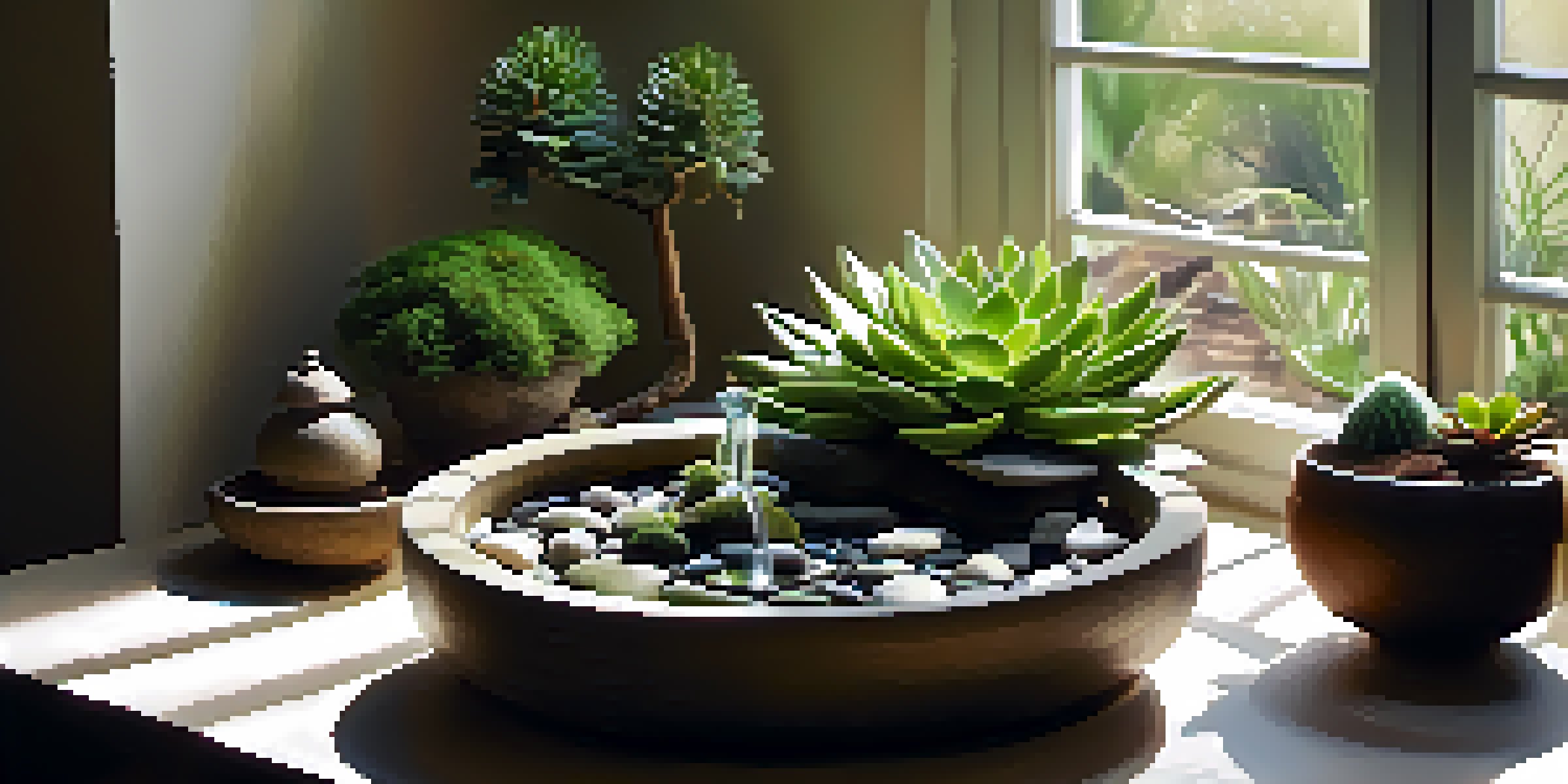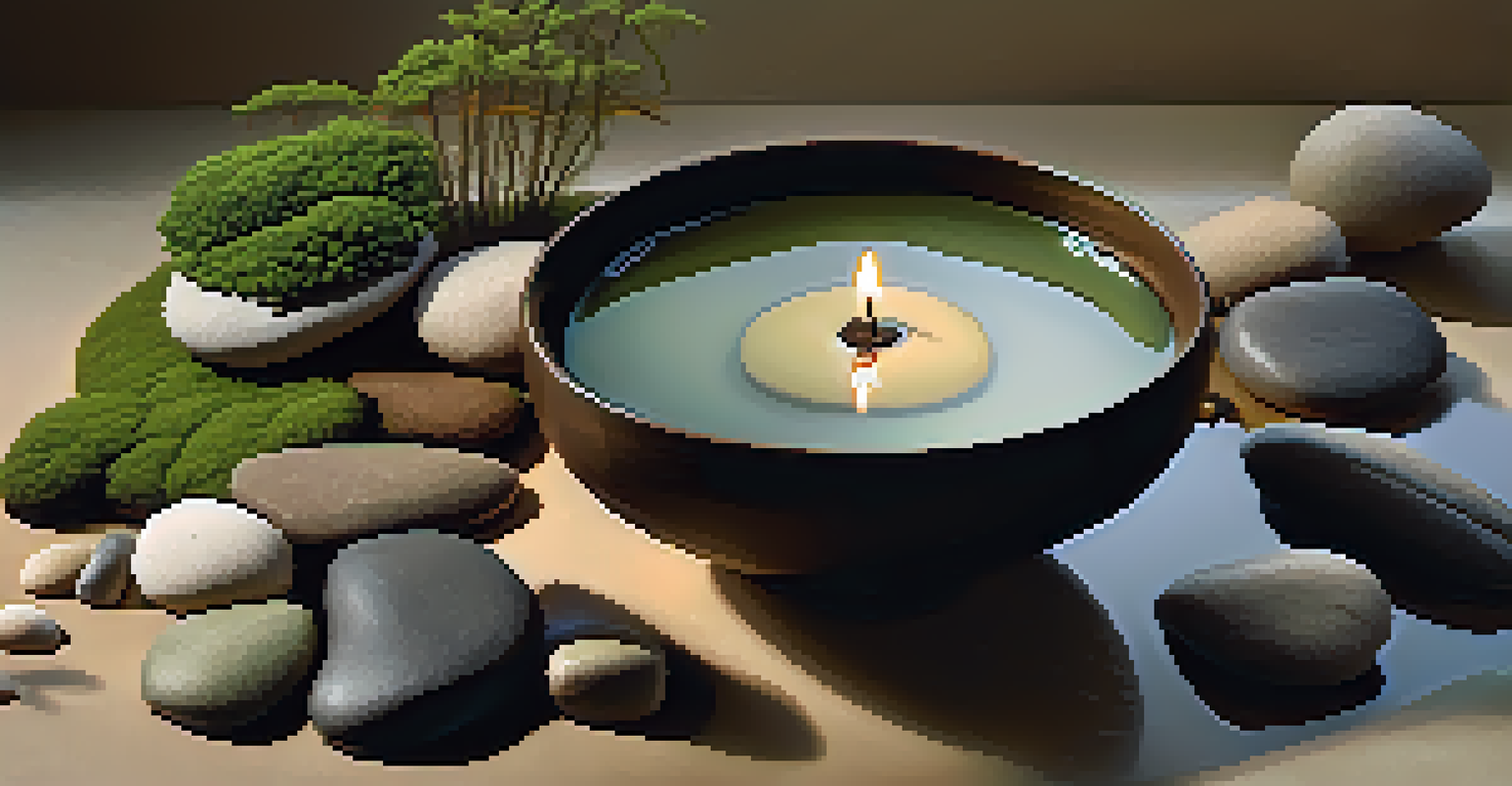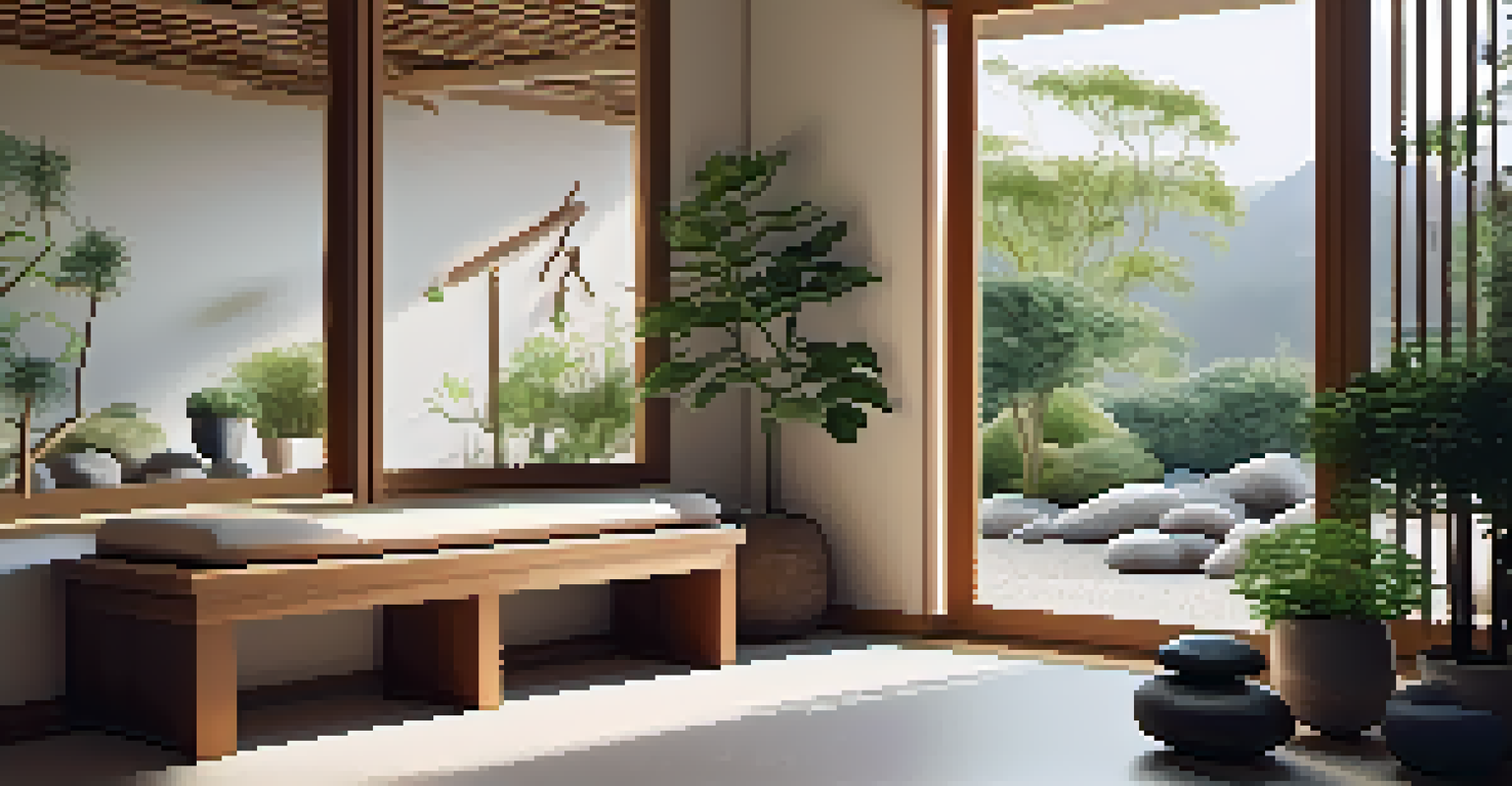Creating a Zen Indoor Garden for Relaxation and Peace

Understanding the Concept of a Zen Garden
A Zen garden, often known as a Japanese rock garden, is designed to promote tranquility and contemplation. Its simplicity encourages mindfulness and relaxation. Traditionally, these gardens feature elements like rocks, gravel, and minimal plant life, creating a serene environment where one can escape the chaos of daily life.
Nature does not hurry, yet everything is accomplished.
Think of a Zen garden as a canvas for your thoughts. Just as an artist uses brush strokes to express emotions, a Zen garden uses natural elements to evoke peace. The careful arrangement of each stone and plant invites you to slow down and reflect, making it a perfect retreat within your home.
By incorporating a Zen garden indoors, you not only enhance your living space but also create a personal sanctuary. Whether you're meditating, reading, or simply unwinding after a long day, this serene setup serves as a gentle reminder to take a moment for yourself.
Choosing the Right Space for Your Indoor Garden
Selecting the perfect spot for your indoor garden is crucial to its success. Look for a quiet corner in your home that receives natural light and is free from distractions. A small nook in your living room or even a windowsill can become an ideal location for your tranquil setup.

Consider the vibe of the chosen space. It should evoke a sense of calm and comfort, encouraging you to spend time there. If possible, place your garden in a room where you often relax, such as a bedroom or meditation space, to maximize its positive effects on your mood.
Creating a Tranquil Indoor Retreat
A Zen garden serves as a personal sanctuary that promotes mindfulness and relaxation through its simple, harmonious elements.
Also, think about accessibility. You want to ensure that your indoor garden is easily reachable for maintenance and that it's a place where you can comfortably sit and enjoy the peaceful ambiance it provides.
Essential Elements of a Zen Indoor Garden
The beauty of a Zen garden lies in its simplicity. Essential elements often include sand, stones, gravel, and greenery. Each component plays a vital role in creating a harmonious balance that promotes relaxation and peace.
The quieter you become, the more you can hear.
Sand or gravel can be raked into patterns, mimicking the ripples of water or the flow of a stream. This act of raking can also be meditative in itself, providing a tactile experience that grounds you. Stones can represent mountains or islands, serving as focal points that draw the eye and encourage contemplation.
Incorporating plants like succulents or moss adds a touch of life and color to your garden. Choose low-maintenance plants that thrive indoors, allowing you to enjoy the beauty without the stress of constant upkeep.
Incorporating Water Features for Serenity
Introducing a water feature, like a small fountain or a bowl of water, can elevate the tranquility of your indoor garden. The sound of flowing water adds a soothing auditory element, enhancing the overall peaceful atmosphere. It creates a sense of calm that can whisk you away from the hustle and bustle of everyday life.
Water is often associated with renewal and relaxation, making it a perfect addition. If space permits, consider a tabletop fountain that continuously circulates water, providing both visual and auditory stimulation. The gentle sound can help drown out distractions and promote a meditative state.
Choosing the Ideal Space Matters
Selecting a calm, well-lit area in your home enhances the positive effects of your indoor garden experience.
Even a simple bowl of water with floating candles or flowers can create a serene focal point. The reflection of light on the water's surface can be mesmerizing, encouraging you to pause and take a deep breath in your peaceful retreat.
Selecting the Right Colors and Materials
Color and material choices significantly impact the ambiance of your Zen garden. Opt for natural materials like wood, stone, and clay to foster a connection with nature. These elements not only look beautiful but also feel grounding, enhancing the overall sense of peace.
When it comes to color, stick to a calming palette with soft greens, browns, and neutral tones. These colors mimic the tranquility of nature and help create an inviting space that encourages relaxation. Avoid bright or harsh colors that can disrupt the calming energy you aim to cultivate.
You can also use colored stones or sand to create subtle patterns that draw the eye without overwhelming the senses. The key is to maintain harmony, ensuring that every element contributes to a cohesive and peaceful environment.
Adding Personal Touches to Your Zen Garden
Personalizing your Zen garden can make it even more meaningful and reflective of your unique style. Consider adding elements that resonate with you, such as meaningful stones, crystals, or small sculptures that represent your journey or aspirations. These personal touches invite you to connect more deeply with your space.
You might also include cherished mementos or photographs that inspire calm or happiness. By surrounding yourself with items that evoke positive memories, you can create an even more uplifting atmosphere. It's all about building a sanctuary that feels like a true reflection of your inner self.
Personalization Enhances Meaning
Adding personal touches to your Zen garden deepens your connection with the space, making it a true reflection of your inner self.
Don't hesitate to change things up from time to time. As you grow and evolve, so can your garden. Rearranging elements can breathe new life into your space and keep it fresh, ensuring that it remains a source of peace and relaxation.
Maintaining Your Zen Indoor Garden for Longevity
Proper maintenance is key to keeping your Zen garden flourishing and serene. Regularly check on your plants, ensuring they receive adequate water and light. Removing any dead leaves or debris will help maintain the garden's visual appeal and promote healthy growth.
For sand or gravel areas, consider raking them weekly to preserve the patterns you've created. Not only does this keep the garden looking tidy, but the act of raking can also serve as a meditative practice, allowing you to refocus your mind.

Lastly, take a moment each day to simply enjoy your garden. Whether it’s through meditation, a deep breath, or just sitting quietly, this dedicated time reinforces the garden's purpose as a peaceful retreat in your daily life.